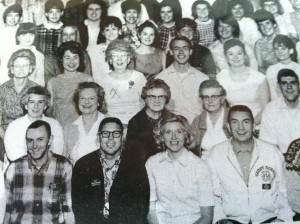http://www.youtube.com/watch?v=OAm7gRXFiRoIt’s common theme these days, a point of conversation among people in every age group, from ‘just out of college’ to those near retirement. “I hate my job”, or “I can’t wait to do something different”, or “I’m counting the days…” It’s a subject worthy of book, because the reality is that there’s a time to stay, and a time to leave, and that the real challenge is knowing what time it is. Leave prematurely, and you’ll fan the flames of discontent that should instead be quenched, creating a raging fire that will scorch your soul. Stay too long, out of fear or lack of initiative, and your soul is also at risk – of atrophy. So, what time is it; time to stay or time to go? Here are some principles to consider when feeling stuck in the maze of job dissatisfaction:
It’s called work for a reason. That there was work given to Adam, even before the fall in Genesis 3, shows us that work is intended by God to be life giving and part of who we are. That there’s a curse attached to it in Genesis 3 means that work, in a fallen world, will have thorns and hence blood; not just rose petals.
I’m not sure many of us believe that. In our positions of global privilege, with the luxury of choice, an increasing mantra that I hear is, “I want to make a difference”, which is code for, “I want a job that is energizing, frees my butt from a desk, and my waist from a tool belt, and enables me to tap into my creativity and things that energize me.
My response: “and you want someone to pick up your garbage, because public health makes a difference. You want someone to write your code, because you seem to enjoy using your computer, which also makes a difference. You want someone to pick your fruit and coffee beans, deliver your food, work at Costco so you can buy stuff cheap, make sure people are paying their taxes so we don’t degenerate into anarchy – just not you.”
It’s vital that we recognize the dangerous roots of this thinking:
Dualism– Industrialization has surely created numerous challenges on the meaningful employment front. Having said that, it’s also true that we Christians have gotten this mighty wrong, no matter how much we say we haven’t. We still believe that it’s a higher calling to be a pastor, or to work for New Horizons, or to start a non-profit, than it is to do people’s taxes, or pick up people’s garbage, or put new roofs on houses. I’m not sure why the hierarchy exists, but to the extent we’ve not pushed back against this by honoring service jobs, manufacturing, and white collar business as ‘equally holy’, we’ve run the risk of diminishing people’s sense of calling and identity, implying that someday they too might “make a difference”, when they’re able to work for a non-profit, or a church. Shame on us. It’s all holy… every square inch.
Freedom – We live in the land of multiple choice. As one writer says: “In America we’ve long celebrated the right of an individual to shape his or her own life. It is part of our DNA” Even a cursory reading of the Bible, reveals that though such freedom might be the American way, it is decidedly not God’s way. Paul calls himself a “prisoner of the Lord” and by that he means that his life has been directed down some paths “not of his own choosing”. He didn’t choose to minister to Gentiles, or prefer it. He didn’t choose to be imprisoned, or prefer it. Peter? The same. Jeremiah? The same. Moses? The same.
Our rich heritage of endless freedom and choice runs the risk of creating a paralysis when we find ourselves in even metaphorical prisons, never mind literal ones. We’re certain that our ‘real life’ is yet ahead of us, because this thing on my plate just now isn’t something I’d ever have chosen. God’s answer, at least in my life has often been: “I know you wouldn’t choose it – but broccoli is good for you”. J.I. Packer declares that the freedom Jesus brings isn’t the freedom of endless choice; it’s freedom from the tyranny of pleasing ourselves. If you attend the church I lead, come this Sunday and watch King George VI embrace the crown as King of England, and you’ll know what I mean.
Comparison – The grass does, almost always, look greener. I love the tiny cars in Europe, wear an Austrian hat, and have even pondered wool knickers for climbing – all retro European. My friend who lives in the Alps? He listens to John Denver and Vince Gill, likes cowboy hats and Land Rovers. We’re both infatuated with the “other” culture. The same piece of our nature often looks at someone else’s job and is convinced theirs must be easier, or at the very least, more meaningful. I know people look at my job that way at times. But yesterday started at 6AM and and ended at 10:30, pure work, right through lunch. Today will be roughly the same, and tomorrow. I’ve been around enough to know that whatever it is that’s glittering on the other side of the fence won’t make me happier – the happiness thing starts now, here, or it doesn’t start at all.
I’ve worked cleaning up a sports arena, in a warehouse, in a steel factory, on a construction site as basically a donkey, as a draftsman, as a musician in orchestras, and in churches ranging in size from a house church to 3000. I’ve led – and I’ve followed. Here’s my conclusion: There’s green grass everywhere – and weeds.
Jim Elliot said, “Wherever you are, be all there.” That’s some of the best advice I’ve ever read, and most of the people I love from history learned to apply it in situations they would never have chosen, finding the priceless gold of contentment and fruitfulness as a result.











